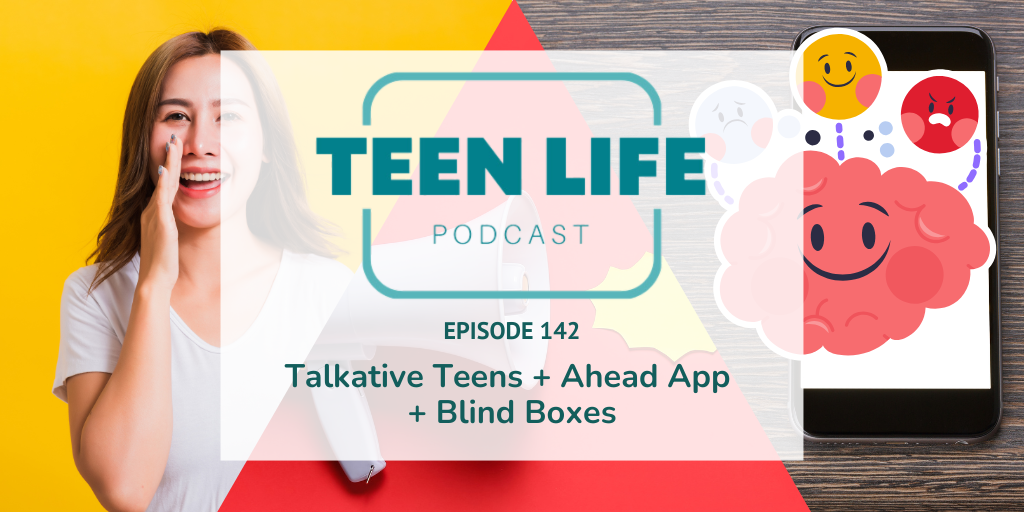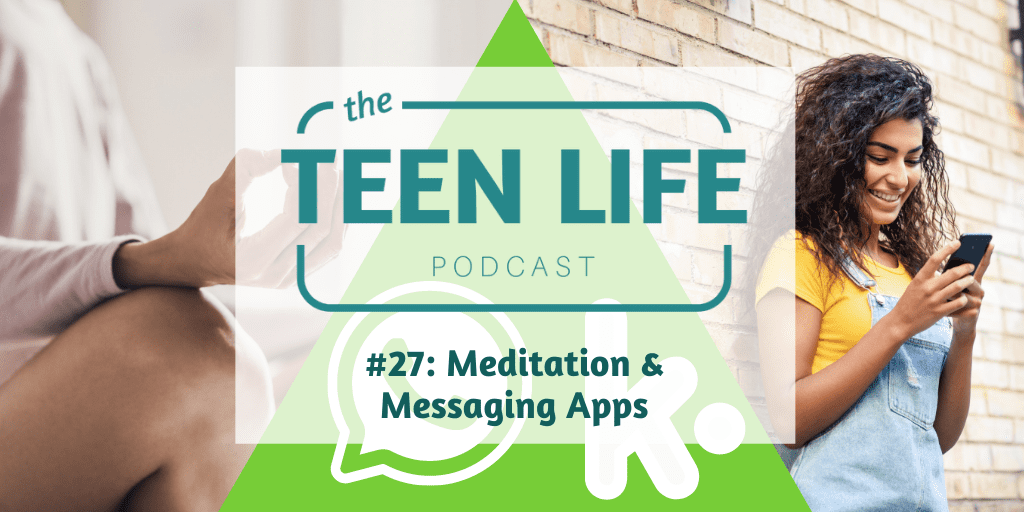Podcast: Play in new window | Download
Navigating Talkative Teens in Group Settings
Why do teens overshare or talk too much?
- ADHD
Some teens may exhibit talkative behavior due to conditions like ADHD, where impulsivity and hyperactivity play a role. - Insecurity
Talking excessively can be a way for teens to mask insecurities and divert attention from their vulnerabilities. - Desire for Attention
Some teens enjoy being the center of attention, seeking validation and approval from their peers. - Peer Encouragement
Encouragement from peers who prefer not to participate in discussions can also contribute to talkative behavior. - Lack of Recognition
Teens may talk excessively if they feel unheard in other areas of their lives, seeking acknowledgment and understanding. - Social Unawareness
In some cases, teens may simply be unaware of social cues and the impact of their talkative behavior on the group.
Where can it be bad?
Addressing these issues promptly is essential. After all, you want everyone to feel safe to participate and not overshadowed.
Tips for redirecting talkative teens in a group setting.
Effectively redirecting talkative behavior requires a delicate approach. You want everyone in the group to feel good about participating, while also encouraging more balanced participation.
Here are some tips for how to deal with talkative students:
- Be Gentle: When addressing talkative teens, focus on redirecting rather than stifling their desire to communicate.
- Reframe Questions: In class or group settings, reframe questions to encourage other participants to share their thoughts. Give talkative teens the opportunity to pass or share.
- Do Interactive Activities: Incorporate games or activities that require everyone’s participation, ensuring a more balanced conversation.
- Set Time Limits: Implement time limits for individual contributions, allowing everyone to have a chance to speak.
- Encourage Others: Politely redirect by saying, “Let’s hear from someone else now!” This subtly guides the conversation to include diverse voices.
- Have a One-on-One Conversation: Speak to the talkative teen privately, seeking their help in engaging others in the class/group.
Advice for Teens
- Relevance: Encourage teens to evaluate the relevance of their contributions to the ongoing discussion.
- Conciseness: Teach teens to share stories in a concise manner, respecting others’ time and attention.
- Empathy: Help teens understand how their talking may impact others’ ability to share their thoughts and opinions.
- Self-Monitoring: If teens wish to reduce talkativeness, suggest counting the number of times they speak in a class or group and gradually decreasing it.
- Use of Tools: Introduce tools like fidget or stress balls as alternatives for teens who struggle with the urge to talk excessively.
TLDR for Teens
Talking is not bad, but sometimes our words mean more when we say less. Ask yourself:
- Is this relevant to this discussion?
- Have I already told this person this story?
- Can I tell this story more concisely?
- Is my talking keeping others from being able to share their thoughts
If this is something you want to work on, count how many times you talk in a class or group. Then cut that number by 2 the next time.
You could also use a fidget or stress ball when you want to talk.
Also in this episode:
- What is the Ahead App and will it really transform your life?
- Blind boxes and chase figures – what are they and why are they so popular?
In this episode, we mentioned or used the following resources.
-
Ahead: App | Self-Awareness Test
-
Blind Box Mentions: Blind Boxes | Mini Brands | FIFA | MLB the Show | Madden | CSGo (Counter-Strike) | Lootbox
-
VeryWellMind: Excessive Talking in Children with ADHD
-
YouthWorker: Dealing with a Talkative Teen
-
Teen Life Podcast: Lapse App | Gamification | BookTok | Sports Betting
- Podcast music by Luke Cabrera & Tobin Hodges
Have a question?

Karlie Duke
Communications Director

Tobin Hodges
Program Director

Caleb Hatchett
Podcast Host
Caleb Hatchett | Podcast Co-Host
Caleb loves helping teenagers take ownership of their faith and relationships. He graduated from Abilene Christian University with a degree in Youth and Family Ministry and is currently Student Ministry Director at Jenks Church in Oklahoma.
Tobin Hodges | Program Director
Tobin’s entire career has been centered around students and teens from all walks of life. He has a passion for helping teens be their best selves. As Program Director, he loves working directly with school staff and students through Teen Life Support Groups. Tobin has a Bachelor’s Degree in Music from Texas Tech University.
Karlie Duke | Director of Communications
Karlie has always had a heart for teenagers. Through her role at Teen Life, she loves to showcase the amazing stories coming out of Support Groups, but she is especially passionate about helping adults and teenagers find connection. Karlie has a BS in Communications with a minor in Family Studies from Abilene Christian University.












